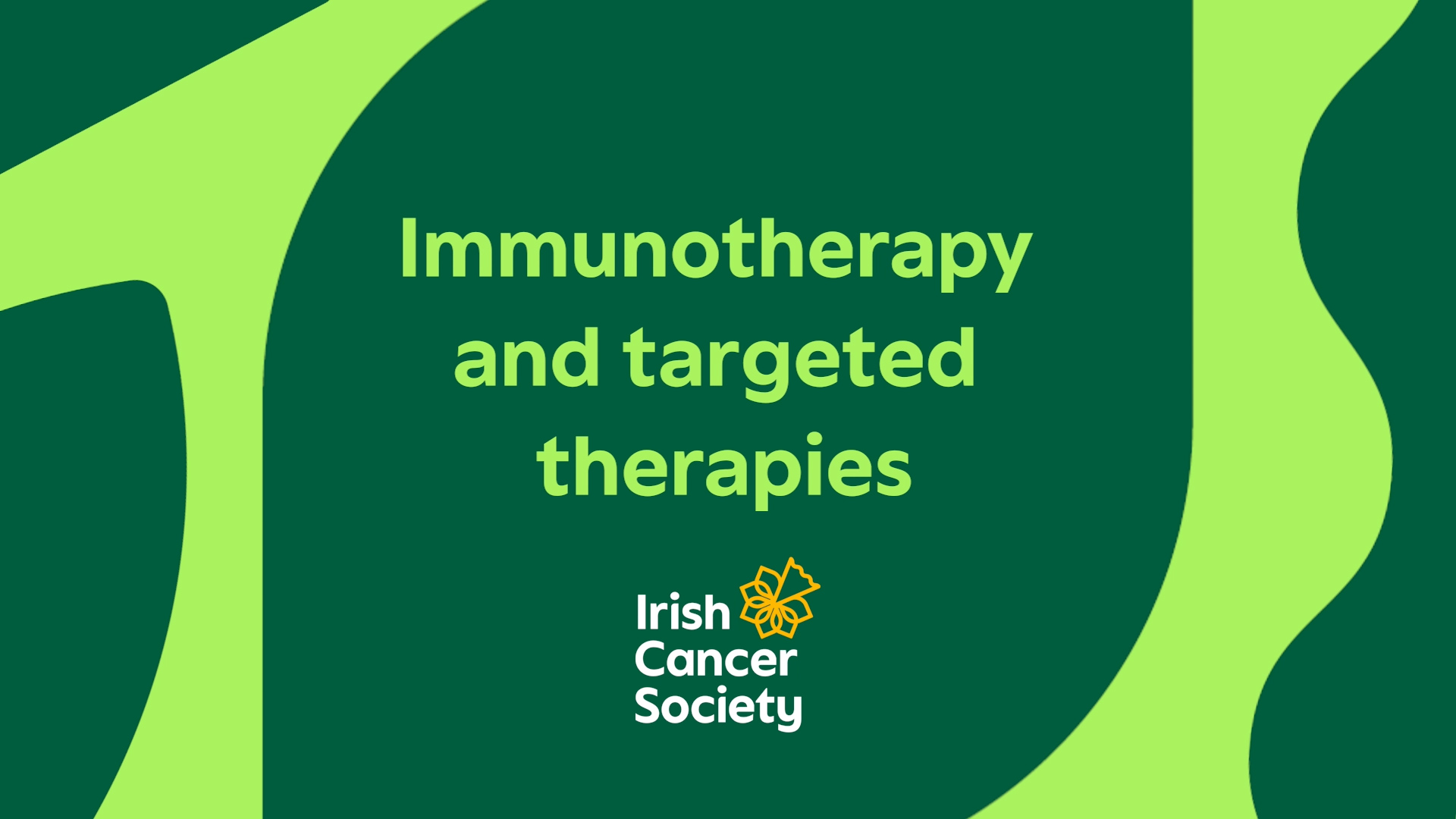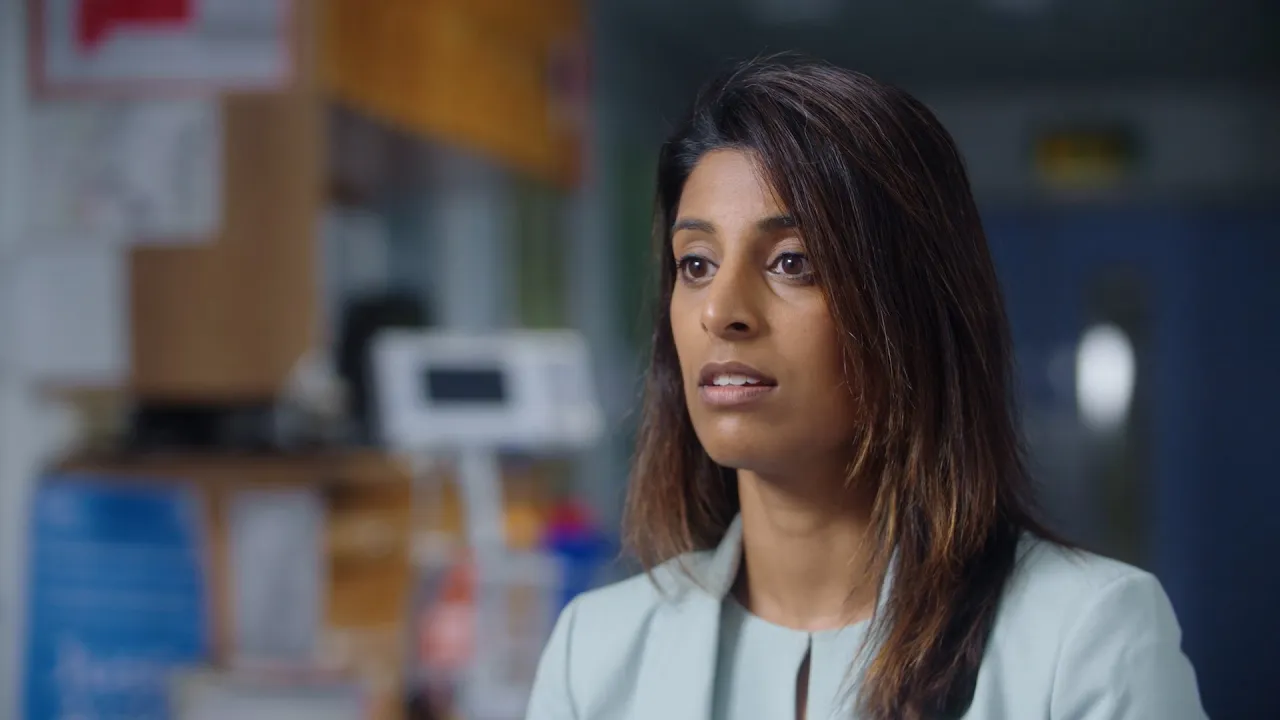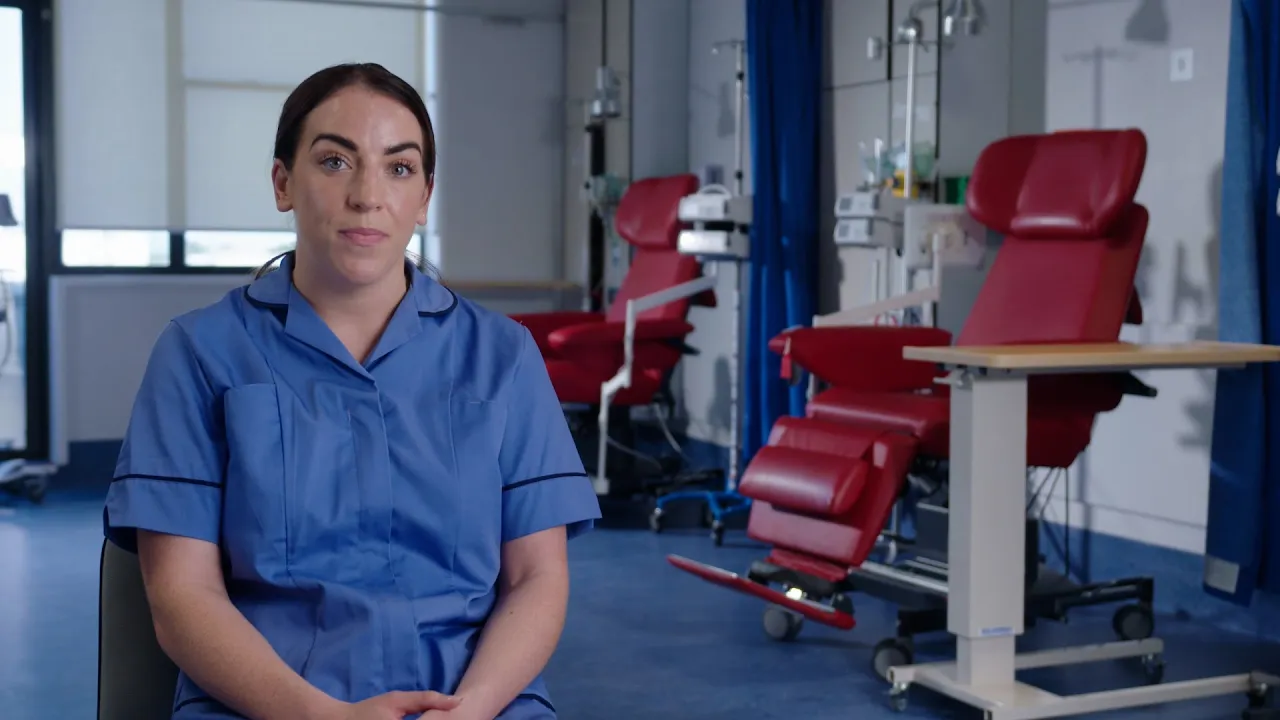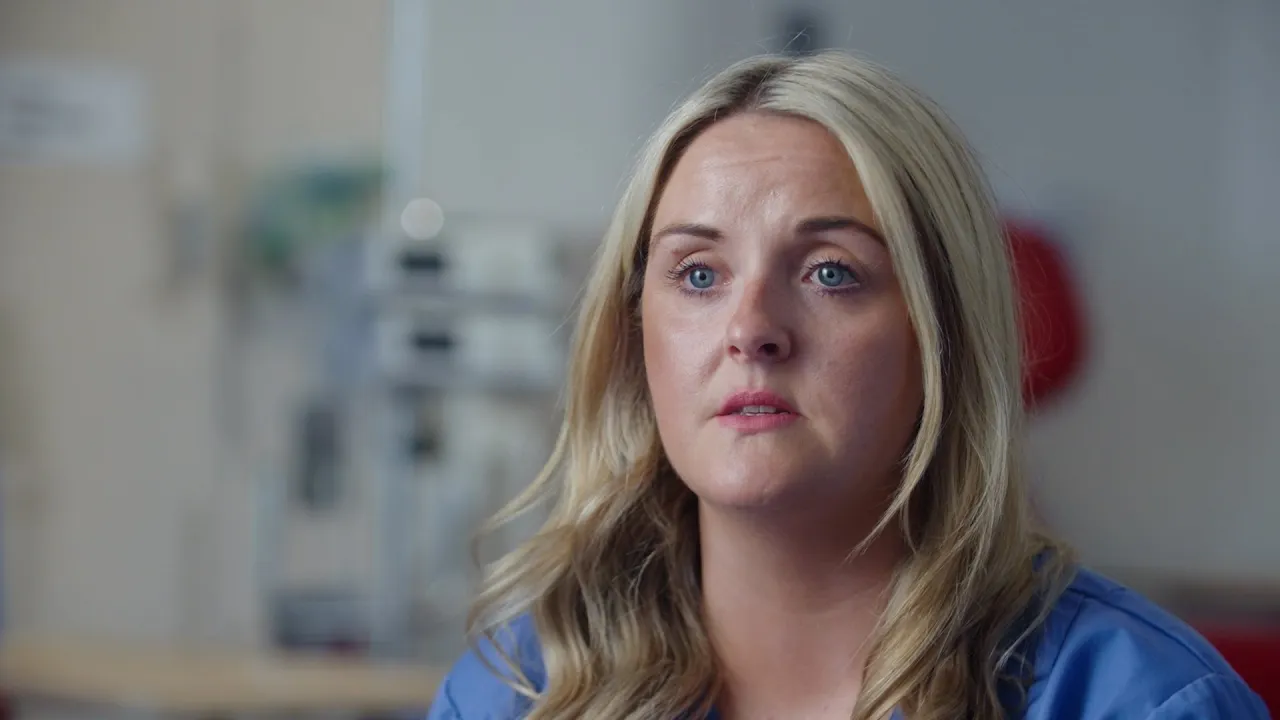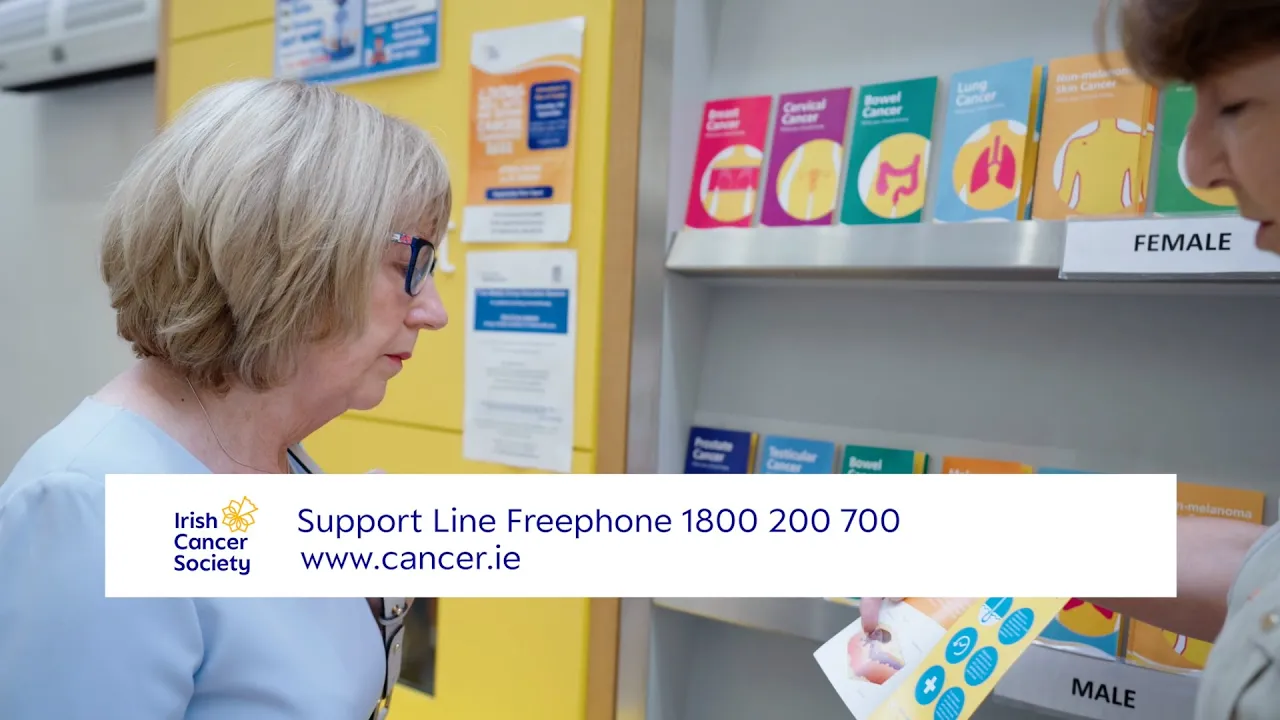Immunotherapy and targeted therapies 5: Support
This video explores why you might need support and outlines all the supports available for you.
0:03
A cancer diagnosis can be hard on you mentally and emotionally. Coping with your thoughts and feelings can be a very difficult part of having cancer. Emotions like sadness, fear, grief, hopelessness, and anger can happen at different times.
0:22
Give yourself time and space to deal with your emotions and get help if you need it. As you progress through your treatment, you may find that other areas of your life are affected too.
0:35
You may need support in different areas such as with your relationships with cancer and your emotions, with cancer in your sex life, changes in your weight.
0:48
You may want to give up smoking. You may need support and advice about money, finances and insurance, or coping at work during treatment.
0:59
You may have some travel issues. You may want support with such things as complementary therapies.
1:07
Your hospital team also work with other specialist healthcare professionals, who can also offer help with specific emotional, physical, and practical issues, and a wide range of areas. So, you may be referred to them for tailored needs.
1:25
For example, you may be referred to a dietitian, a medical social worker, the clinical nurse specialist, psycho-oncology services, a pharmacist. There are many services available to help you cope better with any or all of the information you've learnt today.
1:46
It can be overwhelming, so please do not suffer alone. Your hospital team, the Irish Cancer Society Support Line and Daffodil Centres, as well as a wide network of cancer support centres are all available to support you.
2:05
The cancer nurses on the Support Line and in the Daffodil Centres can provide information, advice and support in all parts of your cancer journey.
2:17
Talk to the nurses if you need extra support. For example, if English isn't your first language or you have trouble reading, they will do their best to help you and can also signpost you.
2:30
You can contact the cancer nurses on the Support Line at 1800 200 700
2:37
Call in and speak to a cancer nurse in the Daffodil Centre in your hospital or visit our website at www.cancer.ie
2:48
Patients often find it hard to get to and from hospital. For example, you might not be feeling well enough to drive yourself because of your treatment, or you may not have a relative available to bring you. The Irish Cancer Society's volunteer drivers make this easier by providing a lift to and from your appointments. Please talk to your nurse specialist if you would like to know more about this service.
3:12
There are many cancer support centres around the country. They provide psychological, emotional, educational, and practical support in a warm and welcoming environment to people with cancer and to those who care for them.
3:28
All these services are confidential, professional, and caring, and provided free of charge. So, please avail of these services too.
Immunotherapy and targeted therapies playlist
